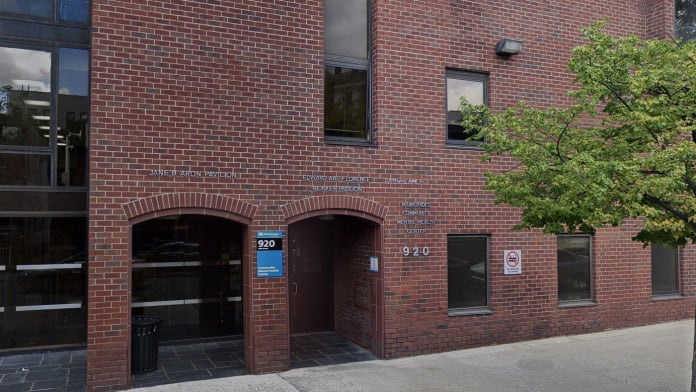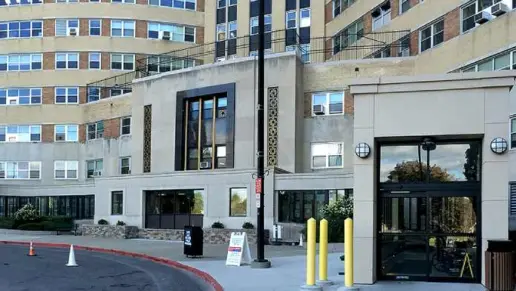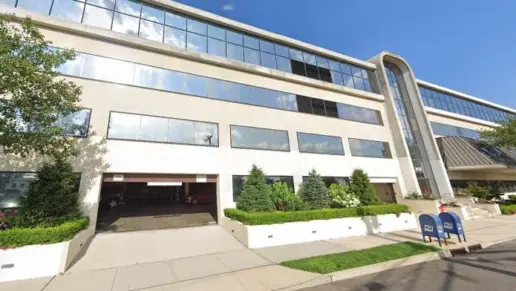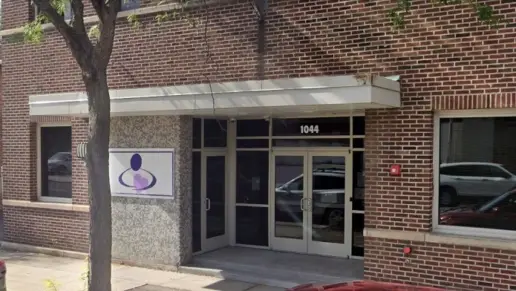About Maimonides Mental & Behavioral Health
Specialty rehab programs at Maimonides Mental & Behavioral Health include tailored care focusing on women's specific needs and experiences, gender-specific addiction treatment addressing unique challenges faced by men, and age-appropriate treatment for teens addressing adolescent-specific issues.
For recreation, patients can unwind in the rec room after a lengthy day of therapy and use the meditation room to promote mindfulness during recovery.
 Payment Options
Payment Options
Medicaid
Private insurance
Self-pay options
Financial aid
Sliding scale payment assistance
Medicare
 Levels of Care
Levels of Care
 Outpatient
Outpatient
Outpatient Programs (OP) are for those seeking mental rehab or drug rehab, but who also stay at home every night. The main difference between outpatient treatment (OP) and intensive outpatient treatment (IOP) lies in the amount of hours the patient spends at the facility. Most of the time an outpatient program is designed for someone who has completed an inpatient stay and is looking to continue their growth in recovery. Outpatient is not meant to be the starting point, it is commonly referred to as aftercare.
 Inpatient
Inpatient
Residential treatment programs are those that offer housing and meals in addition to substance abuse treatment. Rehab facilities that offer residential treatment allow patients to focus solely on recovery, in an environment totally separate from their lives. Some rehab centers specialize in short-term residential treatment (a few days to a week or two), while others solely provide treatment on a long-term basis (several weeks to months). Some offer both, and tailor treatment to the patient's individual requirements.
 Intensive Outpatient
Intensive Outpatient
Clients who enroll in an intensive outpatient program (IOP) are typically either in early recovery or are experiencing a crisis that increases their relapse risk. These programs promote clients' sustained sobriety through robust support, including multiple, extended care sessions per week. Intensive outpatient treatment often encompasses an array of services, including psychotherapy, recovery education, and evidence-based holistic therapies, such as acupuncture and meditation. Many outpatient rehabs also offer medication assisted treatment (MAT).
 Aftercare
Aftercare
Clients in rehab aftercare programs receive a customized portfolio of services designed to promote their sustained sobriety. These clients have completed high-level treatment, are typically exiting detox and/or intensive inpatient care and are reintegrating into their home, workplace, and community. Rehab aftercare services address addiction disease as a chronic condition requiring continuing care. Clients typically work with case managers and recovery teams to access necessary resources, such as peer coaching and 12 step program induction support.
 Intervention Services
Intervention Services
A drug intervention in New York occurs when family members and friends lovingly confront someone with a substance use disorder. The goal of this confrontation is to motivate the person to seek treatment. Loved ones point out how the person's destructive behavior is affecting them in hopes that they will agree to get help. Most inpatient rehab facilities offer intervention services that can help families walk through this process step by step.
 Partial Hospitalization Program
Partial Hospitalization Program
The partial hospitalization program (PHP) level of care offers short-term, intensive rehab for individuals with acute symptoms that require focused management but don't require 24/7 care. PHP treatment provides structured programming (i.e. individual and group therapy) and allows you to return home in the evening. PHP treatment typically meets weekly for a minimum of 20 hours with the duration typically averaging 90 days. While PHP treatment cost can vary, it is often covered by most providers.
 24-Hour Clinical Care
24-Hour Clinical Care
For many different stages and therapies offered during addiction treatment, it's essential to offer 24-hour clinical care in New York. often involves medication treatment for drug or alcohol detox. The withdrawal symptoms experienced during detox can be dangerous, but having medical experts on-site around the clock means someone is always there to step in and provide emergency medical care when and if it is ever needed.
 Medically Assisted Detox
Medically Assisted Detox
Medical detox involves weaning your body off of addictive substances in a medically supervised environment. If you've become dependent on alcohol and/or drugs, quitting on your own can be uncomfortable and even dangerous. In medically assisted detox, a team of licensed medical professionals will help manage potential withdrawal symptoms, ensuring that you're as safe and comfortable as possible. This process typically takes about 5-7 days, although the length will depend on your individual needs.
 Programs
Programs
 Adolescence program
Adolescence program
 Adult program
Adult program
 Program for men
Program for men
 Program for women
Program for women
 Young adult program
Young adult program
 Children program
Children program
 Elderly program
Elderly program
 Hearing impaired program
Hearing impaired program
 HIV/AIDS program
HIV/AIDS program
 LGBTQ program
LGBTQ program
 Military program
Military program
 Settings & Amenities
Settings & Amenities
-
Recreation room
-
Meditation room
-
Private setting
 Insurance
Insurance
Our Policy: Maimonides Mental & Behavioral Health works with several private insurance providers and also accepts private payments when possible, please contact us to verify your specific insurance provider.
 Treatment
Treatment
 Dual Diagnosis
Dual Diagnosis
Many of those suffering from addiction also suffer from mental or emotional illnesses like schizophrenia, bipolar disorder, depression, or anxiety disorders. Rehab and other substance abuse facilities treating those with a dual diagnosis or co-occurring disorder administer psychiatric treatment to address the person's mental health issue in addition to drug and alcohol rehabilitation.
 Mental Health
Mental Health
Mental health rehabs focus on helping individuals recover from mental illnesses like bipolar disorder, clinical depression, anxiety disorders, schizophrenia, and more. Mental health professionals at these facilities are trained to understand and treat mental health issues, both in individual and group settings.
 Clinical Services
Clinical Services
 Cognitive Behavioral Therapy
Cognitive Behavioral Therapy
Cognitive Behavioral Therapy (CBT) is a therapy modality that focuses on the relationship between one's thoughts, feelings, and behaviors. It is used to establish and allow for healthy responses to thoughts and feelings (instead of unhealthy responses, like using drugs or alcohol). CBT has been proven effective for recovering addicts of all kinds, and is used to strengthen a patient's own self-awareness and ability to self-regulate. CBT allows individuals to monitor their own emotional state, become more adept at communicating with others, and manage stress without needing to engage in substance abuse.
 Dialectical Behavior Therapy
Dialectical Behavior Therapy
Dialectical Behavior Therapy (DBT) is a modified form of Cognitive Behavioral Therapy (CBT), a treatment designed to help people understand and ultimately affect the relationship between their thoughts, feelings, and behaviors. DBT is often used for individuals who struggle with self-harm behaviors, such as self-mutilation (cutting) and suicidal thoughts, urges, or attempts. It has been proven clinically effective for those who struggle with out-of-control emotions and mental health illnesses like Borderline Personality Disorder.
 Experiential Therapy
Experiential Therapy
Experiential therapy is a form of therapy in which clients are encouraged to surface and work through subconscious issues by engaging in real-time experiences. Experiential therapy departs from traditional talk therapy by involving the body, and having clients engage in activities, movements, and physical and emotional expression. This can involve role-play or using props (which can include other people). Experiential therapy can help people process trauma, memories, and emotion quickly, deeply, and in a lasting fashion, leading to substantial and impactful healing.
 Family Therapy
Family Therapy
Research clearly demonstrates that recovery is far more successful and sustainable when loved ones like family members participate in rehab and substance abuse treatment. Genetic factors may be at play when it comes to drug and alcohol addiction, as well as mental health issues. Family dynamics often play a critical role in addiction triggers, and if properly educated, family members can be a strong source of support when it comes to rehabilitation.
 Group Therapy
Group Therapy
Group therapy is any therapeutic work that happens in a group (not one-on-one). There are a number of different group therapy modalities, including support groups, experiential therapy, psycho-education, and more. Group therapy involves treatment as well as processing interaction between group members.
 Individual Therapy
Individual Therapy
In individual therapy, a patient meets one-on-one with a trained psychologist or counselor. Therapy is a pivotal part of effective substance abuse treatment, as it often covers root causes of addiction, including challenges faced by the patient in their social, family, and work/school life.
 Life Skills
Life Skills
Coping with day to day living is a challenge while in addiction recovery. Life skills training helps you learn how to manage daily tasks and deal with stress in healthy ways. This is key to long term recovery.
 Motivational Interviewing
Motivational Interviewing
Introduced in 1983, motivational interviewing is a method to help clients commit to change. It's based on the philosophy that change is hard, and clients must explore their own options and come to their own conclusions rather than receive warnings or advice from the therapist.
 Nicotine Replacement Therapy
Nicotine Replacement Therapy
Nicotine Replacement Therapy (NRT) is a way of getting nicotine into the bloodstream without smoking. It uses products that supply low doses of nicotine to help people stop smoking. The goal of therapy is to cut down on cravings for nicotine and ease the symptoms of nicotine withdrawal.
 Trauma Therapy
Trauma Therapy
Trauma therapy involves working through the psychological and emotional impact of a traumatic event. You learn to identify the triggers and develop coping mechanisms that build a sense of safety and trust in yourself.








